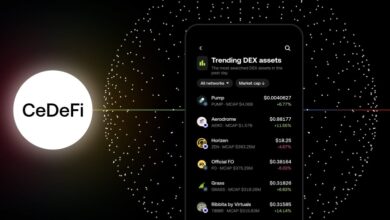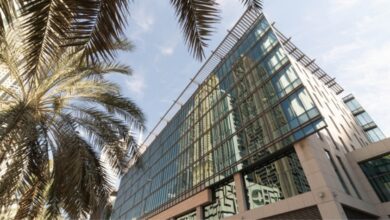Lebanon’s New Cabinet belongs to the past not the future

While the world is living in the 21st century, the age of the 4th industrial revolution, Lebanon is a country where time has stopped; in fact Lebanon has actually gone back in time, a time before agriculture, and the 1st industrial revolution. Lebanon lives in the age of no or little electricity, in the age of water from wells and springs and not taps, in the age of education in the cold and under the rain, in the age of barter economy with no cash. The world has moved forward and Lebanon has stood still and by standing still has moved back in time.
The Lebanese cabinet of today, which still awaits the trust of parliament and the Lebanese public is a reflection of this outdated governance, system, and paradigm. Lebanon’s government portrays a country that is lost, a country that has lost its imagination, its innovation, and its conscious.
One would hope that in a time of economic downfall, fiscal debt, and corruption that surpasses any other seen in the globe, that the Lebanese government would seek innovative, inspirational solutions, solutions that bring hope and trust, solutions that inspire the Lebanese in Lebanon, and its diaspora to once again invest in the future of their beloved country.
To better understand the perspective posed in this piece is to understand how the digital era has changed the governance model, economy and social structures and why the current Lebanese cabinet is not relevant nor does it hold innovation at its core.
The Newly appointed Lebanese Cabinet
Disappointed is an understatement when it comes to the Lebanese cabinet. One might ask that in a country on the brink of collapse, why are we still talking about Ministry of Media, Ministry of Displaced, and Ministry of Economy, Ministry of Labor, and Ministry of Foreign affairs and the others?
We ask ourselves, where is the Ministry of Digitization, the Ministry of Privatization, and the Ministry of Regulation, Ministry of 3D printing /IOT (Internet of Things or Smart Manufacturing), Ministry of Fintech, the Ministry of Digital Identity?
When we think of new Ministries, we make a paradigm shift. When we create new Ministries we are building a new country that gives way to the old and corrupt and opens a new frontier. When we bring in new ideas and concepts we create a future that disconnects us from Lebanon’s past failures.
Ministry of Digitization
In a country of only 6.5 million population, Lebanon’s public sector employs over 300,000 citizens and the wages constitute 35% of the government spending. In addition the government continues to act as a transactional entity, pushing paper here and there under a silo system. Lebanon first started working on an e-government project in 1990s but to this day it is plagued by inefficiencies, bureaucracies and a much corruption with very little electronic in the government. Imagine the new government is talking about e-government in the age of mobile applications and digital governance, where e-government meant database on premise servers and website that allowed citizens to acces and carry out tranactions. These are outdated terminologies in the age of mobile applications, cloud computing and Software as a Service.
Today the world with its governments and private sector entities define themselves first as a technology entity and then as the type of activity they carry out. So for example, Aramco today is a technology company that works in the oil and gas industry, a hospital is a technology entity that serves the healthcare sector. Even governments today are technological entities that strategize for the future building on data being analyzed by systems and unstructured data entering their digital departments. When in the past governments were transactional entities, today they stand as futurists and consultants.
If Lebanon was to digitize its government totally it would save billions of dollars in terms of wages, as well as inefficiencies and loss while increasing transparency and curtailing corruption which is the main issue that the Lebanese are calling for in addition to the donor countries Lebanon is trying to court. According to transparency International Lebanon ranks 137/180 with a score of 28/100.
If for example Lebanon was to implement Blockchain, which can be defined as a network of Blocks that records information, value or transactions in an open, time stamped and distributed manner where the information, transactions or values on the blocks cannot be modified. Lebanon would become the most transparent country in the world. It would matter little if those in government were corrupt, because the digital system sitting on the blockchain isn’t and does not allow corruption.
If Lebanon was to couple blockchain with Artificial Intelligence and cloud computing, its citizens could use mobile applications to do almost anything, transparently, simply, and cost effectively. Each Lebanese could have a digital identity on the blockchain that walks with them from the moment they are born until the day they die, and the data on these platforms could be analyzed by government to formulate future strategies and economic , educational and health programs.
For example Lebanon has one of the highest fiscal evasions when it comes to custom duties. On the basis of a 13% average customs on the import bill of $20 billion, potential custom duties should amount to over $2 billion, while actual duties levied amount to $1.5 billion, leaving a fiscal evasion gap of $0.5 billion, the equivalent of 1% of GDP.” If Lebanon was to implement a Blockchain AI and IOT system for customs and supply chain there would be no way anyone could evade paying taxes. The UAE is implementing such a system with DP World (Dubai Ports), Dubai Chamber of Commerce, Dubai Customs and banking sector
Why can’t Lebanon emulate Estonia which has become the most digitized country in the world? Estonia has incorporated digital identity, blockchain, and AI and is using this in all aspects of governance. For example while Lebanon’ previous Minister of Foreign Affairs was travelling the world to visit the Lebanese diaspora and spending Lebanese funds on new embassies and rehabilitating old ones as well as assigning ambassadors, Estonia was launching digital virtual data embassies saving millions of dollars in tax payers’ money as well as extending its reach to remote countries and reaching out to its citizens and potential visitors, investors regardless of where they were in the world.
Finally for those who might argue that there is no money in Lebanon’s coffers for this digitization, the answer is simple, today with cloud computing, Blockchain as a service, and pay for use, governments no longer need to invest in expensive infrastructure but rather just work with solution providers to implement, and the tech companies then bill the government according to each transaction carried out. This means that the user when paying, a percentage will go to the government and a percentage to the solution provider.
The possibilities are endless, what you need is the innovative, uncorrupted mind of a 21st century government and governance body.
Ministry of Privatization/Regulation
The demise of Lebanon is not the fault of the private sector, on the contrary the private sector in Lebanon and the Lebanese as individuals whether those in diaspora or those in Lebanon have been the backbone that has allowed Lebanon to survive despite the failure of its consecutive governments.
A Lebanese will always pay the electric motor bill, but will avoid paying the Ministry of Electricity. This alone is reason enough to move towards the path of privatization. Coupled with the corruption and inefficiencies of government entities, the only solution becomes privatization.
For those who fear privatization because they fear the greediness of private entities, the solution is simple, regulate. Today with the advent of smart contracts, digitized legislation, and smart economies, privatization is no longer made up of huge conglomerates that monopolize a sector. Today SMEs and medium sized entities are able to provide the same services as huge conglomerates in a more effective efficient way.
Today with crowd funding platforms on the Blockchain or better known as Security token offerings , any citizen, any accredited investor can invest in a sector in an open, transparent manner and own a piece of this privatized entity whether it is electricity, telecom or others. Today privatization and nationalization can go hand in hand, and is actually being used by governments to increase transparency and engage the public.
There are countries in the MENA region including Libya that have set agreements to develop Initial Sovereign offering to bring in investments for infrastructure projects without having to go to World Bank and IMF and include within these offerings transparency using Blockchain.
Another example of how distressed sectors can be saved is what BTG Pactual did in Brazil for the distressed real estate market. They issued a Security token offering on the Ethereum Blockchain, where investors from around the world invested in Brazilian distressed real-estate in a transparent and open manner. Individuals with as little as 500 dollars were able to invest and eventually make profit from this investment. Imagine what Lebanon could do, given its Lebanese diaspora and the many individuals who would be willing to invest in a transparent open system.
Another interesting example that Lebanon could use for its potential oil fields, instead of giving all the revenues of first oil extraction to Total for example, Lebanon could use Permian Chain to seek accredited investors, as well as sell the oil on the Permian exchange. This would allow Lebanon to start selling proven but unproduced oil and gas reserves even before it extracts it in the form of Futures.
in the 21st century and era of 4th industrial revolution there are many ways countries can privatize, or fund distressed public sectors, or even potentially lucrative sectors and can regulate these sectors efficiently using technologies such as Blockchain, AI, IoT and others. These countries can use the private funds of their own citizens and investors around the world instead of taking on high interest loans, or using the likes of World Bank, IMF and others.
In the second part of this article that will be published soon, we will look into other Ministries that Lebanon can create such as the Ministry of Smart Manufacturing and Agriculture that can utilize technologies such as 3D printing, IoT, new agriculture technologies to build these sectors. We will also talk about the Ministry of Fintech, the Ministry of Fintech, and the Ministry of Smart Judiciary, and the Ministry of Digital Identity. It is my opinion that when we think of Ministries or even department such as these, it no longer matters which political head is governing it because the system will not allow for corruption and the tools at hand can leapfrog Lebanon into the future and save it from the abyss.





